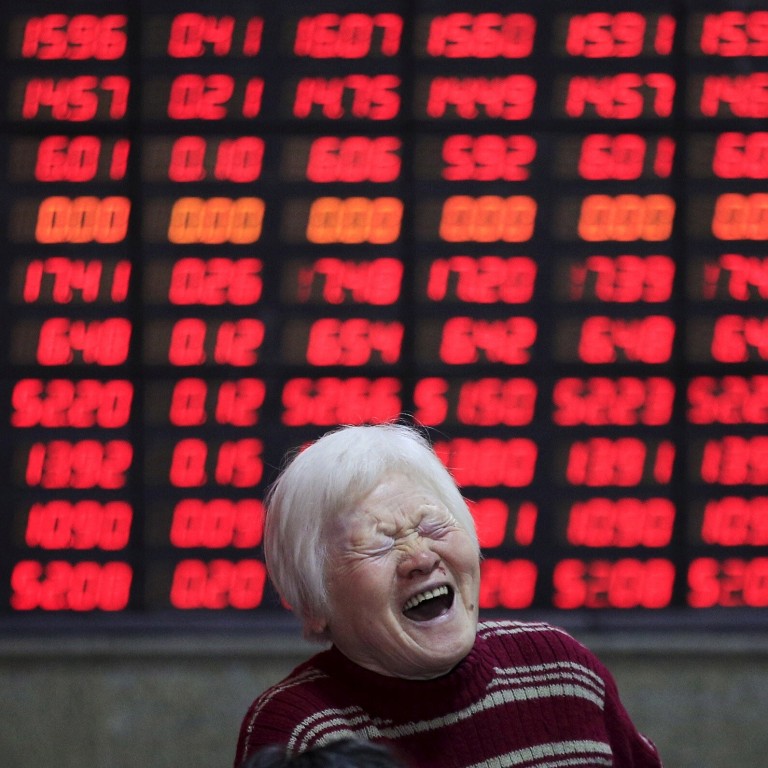
China’s July new stock accounts more than double to 2.43 million as traders continue their headlong dive into market to sustain rally
- July’s new A-share trading accounts more than doubled from last year to 2.43 million, according to data by the China Securities Depository and Clearing
- That raised the total to 170.2 million accounts as of July 31, making it the world’s eighth largest cluster of people, more than the population of Bangladesh and just behind Nigeria
“The big number of new investors reflects the influx of fresh funds, which would sustain the market for a while,” said Ding Haifeng, a consultant with Shanghai-based financial advisory firm Integrity. “After all, strong runs on China’s stock market were often driven by speculative capital, rather than economic and company fundamentals.”

For now, sage advice for restraint appear to have fallen on deaf ears, as the Shanghai Composite Index’s 11 per cent jump this year put it behind Copenhagen’s OMX20 and Buenos Aires’ Merval as the world’s third-best performing major index. In the first six months, 7.98 million new equity trading accounts were added on the Shanghai and Shenzhen stock exchanges, data showed.
Bullish sentiments in China were boosted by an economy that reversed the first quarter’s contraction with a 3.2 per cent growth from April to June, as output and consumption creaked back into life in the first major country to emerge from its coronavirus lockdown.
“Unseasoned investors should learn that a roller-coast A-share market could cause them huge losses,” said Zhang Wei, who had been trading stocks for 20 years in Shanghai. “It is dangerous to play stocks now since the key indicator had already chalked up a stellar gain.”
Dozens of retail traders - typically pensioners - gathering around electronic data boards to keep score of their investments is a common and enduring scene across thousands of stockbroking firms in the country. During market crashes, when large losses are incurred, these traders can also turn ruly, showing up in protest rallies outside regulatory offices to demand recourse and compensation.
That is a structural deficiency that the market regulator had been trying to repair for decades, as it sought to create a bigger role for long-term, institutional investors like the sovereign wealth fund unit Central Huijin Investment to help infuse the market with discipline and informed investment decisions.

